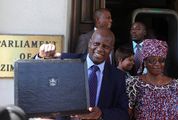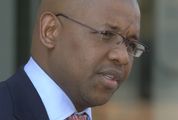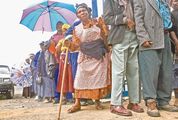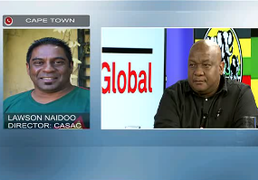Lawyers praise Nelson Mandela’s leadership qualities
by Evan Pickworth, Sue Blaine and Nick Kotch
2013-12-06 18:33:16.0
NELSON Mandela’s qualities as a leader who truly served his people and remained humble are the most important lessons to be learnt from his life, law firm Routledge Modise’s chairman, Lavery Modise, said on Friday.
"He brought out the best of what is expected in a leader. I cannot think of a better example. It will be a hard act to follow, but we should all try to emulate him," said Mr Modise, whose firm last month merged with major global firm Hogan Lovells.
"He left a legacy, not only for the legal profession, but for the broad spectrum of South African society. He was a servant leader. He served his people and not the other way around and that is what we need to learn."
Lawyers for Human Rights said Mandela’s illustrious legacy was what had kept civil society’s eye so keenly focused on human rights in South Africa, across the continent and abroad. "While we can’t say we’ve accomplished everything he set out to achieve, we can certainly say that we are on the right track despite the numerous obstacles we face," it said.
Almost two decades into its democracy, South Africa was not the country that Mandela had said he hoped it would become, said Kenneth Roth, executive director at Human Rights Watch.
Inequality and poverty remained rife, the education and health sectors were inadequate, and South Africa remained divided by racial separation and deep economic inequality, Mr Roth said in a Human Rights Watch press release.
"Mandela led South Africa out of darkness and brutality," Mr Roth said. "The country’s next generation of leaders would do well to live up to his high standards and fervent commitment to human rights."
Mandela, who finished his legal studies while incarcerated, practised as a lawyer in the early part of his career.
NELSON Mandela’s qualities as a leader who truly served his people and remained humble are the most important lessons to be learnt from his life, law firm Routledge Modise’s chairman, Lavery Modise, said on Friday.
"He brought out the best of what is expected in a leader. I cannot think of a better example. It will be a hard act to follow, but we should all try to emulate him," said Mr Modise, whose firm last month merged with major global firm Hogan Lovells.
"He left a legacy, not only for the legal profession, but for the broad spectrum of South African society. He was a servant leader. He served his people and not the other way around and that is what we need to learn."
Lawyers for Human Rights said Mandela’s illustrious legacy was what had kept civil society’s eye so keenly focused on human rights in South Africa, across the continent and abroad. "While we can’t say we’ve accomplished everything he set out to achieve, we can certainly say that we are on the right track despite the numerous obstacles we face," it said.
Almost two decades into its democracy, South Africa was not the country that Mandela had said he hoped it would become, said Kenneth Roth, executive director at Human Rights Watch.
Inequality and poverty remained rife, the education and health sectors were inadequate, and South Africa remained divided by racial separation and deep economic inequality, Mr Roth said in a Human Rights Watch press release.
"Mandela led South Africa out of darkness and brutality," Mr Roth said. "The country’s next generation of leaders would do well to live up to his high standards and fervent commitment to human rights."
Mandela, who finished his legal studies while incarcerated, practised as a lawyer in the early part of his career.













 News and views on the death, and life, of former president Nelson Mandela, with
tributes and photographs
News and views on the death, and life, of former president Nelson Mandela, with
tributes and photographs









